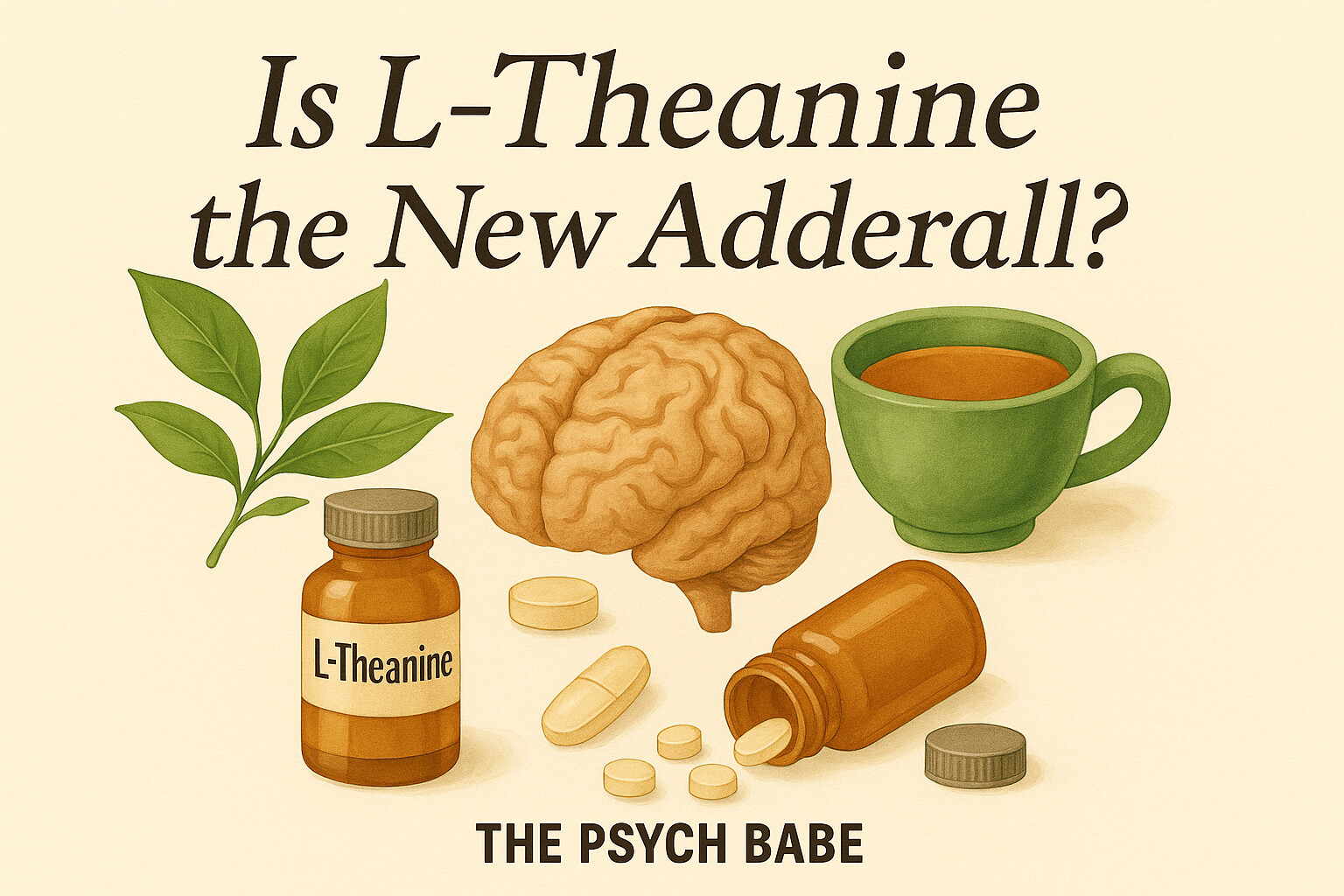Ever wonder why there’s so much hype around green tea? 🍃
Well, one of the reasons is that there’s a non- proteinogenic amino acid found in its leaves called L-Theanine. Structurally it resembles glutamate, the brains main excitatory neurotransmitter, and when we ingest it, it is known for bringing the body into a state of calm focus – unless the fuzzy calm of a glass of wine or other ‘sedative’ herbs.
What does L-Theanine do?
L-Theanine is able to cross over the blood brain barrier and modulate brain activity by doing three key things:
- Increases alpha bran waves: linked to relaxation, focus and meditative states
- Influencing neurotransmitters: increases GABA, serotonin, and dopamine which all effect mood, relaxation and reward pathways
- Glutamate receptor agonist: balances excitatory activity in the brain
Benefits (and Why I Recommend It)
Studies show it reduces stress and anxiety, mitigating the jittery feeling in your body when you feel stress as well as the taking the edge off mentally. What I like about it is that it has no sedative side effects and you can take 100-400 mg depending on how stressed you feel without worried about the side effects making you drowsy.
Secondly, although it won’t knock you out, it can help improve sleep quality by quieting racing thoughts. It can do this by increasing GABA which acts as the central nervous system’s primary inhibitory neurotransmitter, promoting relaxation and reducing brain activity to prepare for sleep.
*This is especially good for those with stress-related insomnia
The mood and mental health benefits are my favorite amongst researched benefits, as the pilot studies indicate adjunctive benefits in depression, cognative rumination, ADHD and even schizophrenia!
Cognitive function is another potential benefit of L-Theanine. In a 2007 study it was shown that the increase in alpha wave activity was linked to attention enhancement. Additionally, a 2008 study purported that when combined with caffeine in tea or coffee, it was shown to have improved attention and alertness. This is connected to potential ADHD benefits. Could this be the new natural form of Adderall for people who are looking to get away from CNS stimulants?! Maybe! For those who want to try it -the magic ratio here seems to be 200 mg L-Theanine to 100mg caffeine.
Wanna Try It? Here’s What to Look For:
Dosage: Most research lands in the 100-400mg/ day range, often split into two doses.
Formulations:
- Suntheanine® is a patented, fermentation-derived form chemically identical to naturally occurring L-theanine, and is the most studied in clinical trials.
- Generic L-theanine may be synthetic or tea-derived; efficacy is likely comparable if purity is high, but standardization varies.
- Quality control: Seek products that are third-party tested (USP, NSF, Informed-Choice). Avoid blends that obscure L-theanine content within “proprietary formulas.”
- Synergy: A 2:1 ratio of L-theanine to caffeine (e.g., 200 mg L-theanine + 100 mg caffeine) is commonly cited for cognitive enhancement without overstimulation.
- A few reliable brands I have used:
Is it safe?
Yes! Side effects with L-theanine are pretty rare, and when they do show up, they’re usually mild—things like a headache, nausea, or a little dizziness. Overall, it’s considered very safe for most people. That said, I always recommend checking in with your healthcare provider before adding any new supplement, especially if you have health conditions or are on medication. And if you’re pregnant or breastfeeding, it’s best to be extra cautious since we don’t have enough research yet on safety in those cases
Bottom Line
L-theanine is one of those rare wellness hacks that actually lives up to the hype. It calms without sedation and helps you focus without the methy, tooth grinding side effects of stimulants like Adderall. My take – FACT! L-theanine is worth it and will be something I use for myself and my clients.
© 2025 Nassif Psychotherapy Co. All Rights Reserved.

